Global Journal of Fertility and Research
The effects of Semen Parameters and age on Sperm Motility of Iranian men
Sperm Motility; Age; Semen Parameters
2Department of nursing, Takestan Medical Sciences Branch, Islamic Azad University, Takestan, Iran
3Department of Genetics, Faculty of Medical science, Qazvin University of Medical Sciences, Qazvin, Iran
Cite this as
Shabani K, Hosseini S, Mohammad khani AG, Moghbelinejad S (2017) The effects of Semen Parameters and age on Sperm Motility of Iranian men. Glob J Fertil Res 2(1): 024-029. DOI: 10.17352/gjfr.000008Objective: Sperm motility is one of the most important factor in fertility of men. Because, it describes the ability of sperm to move properly through the female reproductive tract and reach the egg in order to fertilize it. Various factors, such as semen quality and other parameters are known to be effect on sperm motility. This study was designed to determine, how semen parameters and individuals age influence on sperm motility.
Method: Samples were collected from 273 men undergoing evaluation and treatment for infertility in Infertility Treatment Center, ACECR branch of Qazvin, Qazvin, Iran. Semen analysis was performed according to World Health Organization (WHO) criteria. In this procedure we considered on determination of sample volume, sperm concentration, motility, normal morphology and liquefaction time.
Results: In this analysis, our results showed, increasing in sperm count, sample volume and normal morphology increased sperm motility significantly. In contrast, increasing in liquefaction time and age decreased sperm motility significantly. Our statistical analysis demonstrated that sperm concentration and semen volume have the most and lowest effect on motility respectively.
Conclusion: In our study, semen parameters tend to have an influence on sperm motility.
Introduction
Male infertility refers to male inability to cause pregnancy in a fertile female and it commonly due to deficiencies in the semen quality. Male infertility evaluation includes a physical exam, hormonal evaluation, semen analysis and genetic testing [1]. Semen analysis is the primary and the most important part of the infertility assessment, which is done by World Health Organization (WHO) manual for the examination of human semen parameters [2].
The most broadly used parameters are sperm concentration (count), motility, progressive motility, sperm morphology, semen liquefaction time and semen PH [3].
The normal count of sperm is more than or equivalent to 20 million per milliliter. In according to that normal volume of ejaculation is 2ml, at least 40 million sperm is necessary to fertilize an egg. The other important factors in male fertility are motility and normal morphology. These two factors influence sperm swimming to reach egg as well as the viability of the embryo which might be created [4].
Sperm cells are generated during spermatogenesis and spermiogenesis. However, the generated spermatozoa are immature. They must undertake many modifications due to be able to participate in fertilization process. Spermiogenesisis done in the testis but spermatozoa undergoes maturation process in the epididymis until ejaculation [5]. The prostate which is the largest sexual gland is crucial for male fertility. Prostate secretions partly supply seminal plasma, which protects and nourishes sperm after ejaculation [6].
Spermatozoa are not motile in male body and they obtain motility after ejaculation. Sperm motility is usually started by changes in special situation such as ionic concentrations or osmotic stimulation [5].
Sperm motility is a fundamental factor in the fertilization. There are still major gaps in the knowledge of how sperm motility is controlled or modulated [7]. In all our analysis on semen parameter, WHO standards are used as a reference [8]. It is well known that sperm motility affects male fertility but other semen parameter relation with sperm motility and how they have an effect on each other has not yet been evaluated. So, this study was designed to define the sperm motility in patients with infertility and find how sperm motility and semen other parameters may affect each other.
Material and Methods
Subjects
This study was approved by the Ethical Committee of the ACECR Telemedicine Infertility Center. The study was conducted for 25 months (June, 2013 –August 2015) on 473 patients who referred to ACECR Telemedicine Infertility Center for infertility problem. All subjects gave written informed consent. In this research, we excluded our samples with these criteria (had smoking, vasectomy, chemotherapy, radiotherapy, infertility). Our studied men were referred to infertility center for his wife fertility problem. Based on these exclusion criteria among the 473 men, we evaluated 273 of them.
Semen collection and laboratory evaluation
The instructions, were to abstain for a minimum of 2 up to 7 days. The man masturbates and collects the ejaculated sample into a cup. Then, semen should be examined within a few hours, to achieve the most accurate results. The following parameters was evaluated:
Semen volume
The semen samples was evaluated by volume measurement of the seminal fluid by using a graduated measuring cylinder. 2 milliliters was a normal volume. A very low volume indicated that the seminal vesicles may not be making enough fluid or that these ducts may be blocked. It may also indicated a problem with the prostate gland.
PH measurement
In this regard, pH paper ranges from 0 to 14 was used (Merck, KGaA). Eachtypes of pH paper be used for this analysis, its accuracy be checked against based on known standards before the use in routine semen analysis [9,10].
Sperm motility
A fixed volume of semen (not more than 10 μl) was delivered onto a clean glass slide and covered with a 22×22 mm cover slip. The freshly made wet preparation was left to stabilize for one minute then examined with a microscope using 40× magnification, then the percentage and grade of spermatozoa motility was recorded. Motility estimation can conveniently be carried out at a room temperature between 18 and 24°c. At temperatures outside this range, some alteration in sperm motility will occur and this must be standardized in the laboratory. The microscopic field be scanned and the motility of each spermatozoa on encountered is graded a, b, c or d according to whether it shows [10]: (a) rapid progressive motility, (b) slow or sluggish progressive motility (c) non-progressive motility, (d) Immobility.
Sperm count
Sperm concentration of gently mixed samples was determined for three independent loadings on a Neuberhemocytometer.
Sperm morphology
Determination of sperm morphology comprises the following steps (which are described in detail in subsequent sections). 1: Preparing a smear of semen on a slide. 2: Smears were made on the glass slides and the slides were fixed in 95% ethyl alcohol for about 30 minutes. Sperm morphology was classified according to the WHO criteria [10]. The air-dried smears, were fixed in ethanol and ethere, then stained by a modified Papanicolaou technique [10]. 3: Mounting the slide with a coverslip if the slide was to be kept for a long time. 4: Examining the slide with bright field optics at ×1000 magnification with oil immersion. 5: Assessing approximately 200 spermatozoa per replicate for the percentage of normal forms and abnormal forms. 6: Comparing replicate values to see if they were close acceptably: if so, proceeding with calculations; if not, re-reading the slides. The slides were then examined microscopically for morphology. Normal results are when 4% or more of the sperm have normal shaped heads. Men with less than 4% of normal shaped sperm may have a significant infertility problem.
Statistical analysis
Statistical evaluation was made with IBM SPSS Statistics version 22.0.0.0 64 bit edition. Data (presented as means±SEM) were analyzed using repeated-measures Pearson Correlation, Kendall’s taub, Regression, Bar chart, scatter/dot followed for significant differences. The significance level was fixed at 0.05. Spearman Correlations were calculated between parameters of semen.
Results
The average age of participants in this research was 33.65±1.78. Among the 273 individuals that we evaluated, 77.1% had no smoking history and 22.4% had smoking history. Evaluation of different sperm parameters showed, there was no significant difference in sperm concentration, motility, morphology and semen liquefaction between these groups (P>0.05). Other criteria which we assessed was varicocelesurgery history, 24.3% of men had surgery and 7.16% of them had no history of surgery. There was a significant decreasing in sperm concentration in men with varicocele surgery in compared to men with any surgery, 81±1.97 versus 104±1.85 (P<0.05). 35.7% of individuals had drug use and 63.8% of them had no history of drug using. We didn’t observe significant difference in sperm parameters between these groups (P>0.05). In as much as smoking, surgery and drug use interfere in our work, we excluded 200 persons from the study and our investigation (the correlation between semen parameters and sperm motility) was conducted on 273 men. Results showed, the sperm count, morphology and semen volume had significant effects on motility (P < 0.000) which it means, they cause an increase in sperm motility significantly (P-value for trend, 0.000) (Figures 1-3). Figure 4 illustrates that age of patients significantly affects motility (P < 0.001) which an increase in age cause a significant decrease in sperm motility. Moreover, 273 men examined for the relationship between semen liquefaction time and sperm motility. There was good evidence that confirm the correlation between sperm motility and liquefaction time which it means with liquefaction time increasing, motility of sperm significantly decreased (P < 0.001) (Figure 5).
In other section of this research, we assessed the predictor importance of different semen parameters on sperm motility, in this regard our results showed, among the different parameters concentration had high predictor importance (0.43) and volume the lowest predictor importance (0.06) (Figure 6) (Tables 1,2).
Discussion
Fertilization ability of human sperm has been shown to correlate intimately with sperm motility [11,12]. In this study, we have attempted to determine if there is any relationship between other semen parameters and motility. Our results showed the significant correlation between several semen parameters and sperm motility of men referred to Telemedicine Infertility Treatment Center, ACECR branch of Qazvin. This investigation demonstrated a direct correlation between sperm motility and concentration, morphology and volume whereas a reverse correlation was observed between sperm motility with age and liquefaction time.
Sperm concentration and morphology significantly affect motility [13]. In according to our results, the most important semen parameter which had the largest effect on motility was concentration. In this line was shown, linear velocity was affected by the concentration of cells present in the counting chamber [14]. More significant linear velocity in semen were observed in samples with sperm concentration less than 40 × 10(6) cells/ml [14]. Moreover, in Gundogana et al., 2010 study, it was observed that concentration profoundly had effects on some sperm characteristic such as motility and morphology [13]. Sing et al., 2010 showed that sperm motility has progressive linear correlation with sperm concentration. They have been done a cross sectional study of sperm motility index (SMI) in two-hundred subject consists of normozoospermic and oligoasthenoteratozoospermic males which showed that a positive correlation between SMI and sperm concentration [15].
Motility, was found to be affected by sperm morphology which an increase in normal morphology result in an increment in motility. Although sperm tail morphology is the most important factor in motility but head morphology is also important for motility [14]. This fact was supported in one study that the cervical mucus chooses the spermatozoa based on their morphology: spermatozoa with head abnormalities or abnormalities in the principal or middle pieces of the tail, are stopped by the mucus [16].
The results of our study demonstrated that an increase in age cause a significant decrease in sperm motility. In parallel, this fact has been demonstrated by some other studies [17-19]. This decrease may be partly related to the ageing of the male reproductive tract and sexual dysfunctions [20]. It has been reported that testosterone is required for the production of sperm with normal mobility and preserve activity of testis and sex glands [21]. The progressive decrease in testosterone levels along ageing in men is undeniable but this decline shows a large variations between men, with possible related factors, such as obesity, drugs, alcohol, genetic factors and chronic diseases [20]. Studies of sperm morphology and motility revealed that there is a reduction in sperm motility in older men whereas the percent of abnormal shape sperm is increased [21]. Recently, it was described that prostate secretions -specially secretions of the prostate dorsal lobe - are essential for progressive sperm motility in uterus and it is also known that old men show prostate alterations too [21].
In the present study we showed that high semen volume significantly causes an increase in sperm motility. The probable reason can be the protective effects of seminal plasma and its contents of spermatozoa. It is recommended that the seminal plasma which is covering each spermatozoon protect them from premature aging and improve other criteria such as motility. It means, the higher volume of seminal plasma and its components may be one of the reasons for better conservation of functional and structural parameters in semen fluid [22]. The change in semen volume is possibly is affected by the dietary habit [23]. Some other studies show a positive correlation between seminal volume and the length of short-term abstinence. In one hand, there is an association between serum testosterone level and seminal fructose concentration and in the other hand, testosterone decreased within a decline in Zinc level. Moreover, one of the first evidence of zinc depletion may be reduced seminal volume, induced by an alteration in Leydig cell output [23]. So, it is suggested that the higher volume of seminal plasma may be one of the reasons for better motility of sperm which it can prevent spermatozoa premature aging during storage. The possible physiological reasons may be the effects of seminal plasma volume and its components on suppressing of endogenous free radical production [23].
This study showed that by liquefaction time increasing, motility of sperm significantly decreased. There are some studies which have shown a relationship between the coagulation-liquefaction property of human ejaculates and their semen quality [24]. Chomsrimek et al. 2008, reported that sperm motility reduced when the time between semen ejaculation and semen analysis increased. This reduction has been seen profoundly at 60 minutes after ejaculation [25].
Conclusion
This study demonstrated that sperm motility also appeared to be affected by other semen parameters. In according to our results, there is a direct correlation between sperm motility with concentration, morphology and volume whereas a reverse correlation was observed between sperm motility compare to age and liquefaction time. Since Sperm motility is a fundamental factor in the fertilization, according to factors effect to this parameter is important clinically, specifically in IVF procedures.
The authors wish to express their sincere thanks to all individuals for their contribution.
- Nallella KP, Sharma RK, Aziz N, Agarwal A (2006) Significance of sperm characteristics in the evaluation of male infertility. Fertil Steril 85: 629-634. Link: https://goo.gl/xxKSuk
- Cooper TG, Noonan E, von Eckardstein S, Auger J, Baker HW, et al. (2010) World Health Organization reference values for human semen characteristics. Hum Reprod Update 16: 231-245. Link: https://goo.gl/GncCXa
- Oehninger S, Franken DR, Ombelet W (2014) Sperm functional tests. Fertility and Sterility 102: 1528-1533. Link: https://goo.gl/EEThuJ
- Wang R, Allison J (2005) Male Infertility. Science 308: 1466-1469.
- Yoshida M, Kawano N, Yoshida K (2008) Control of sperm motility and fertility: Diverse factors and common mechanisms. Cell Mol Life Sci 65: 3446-3457. Link: https://goo.gl/1QAbEL
- Wei X, Li Z, Zhang G, Yuan H, Lv J, et al. (2014) B7-H3 Promoted Sperm Motility in Humans. Urology 83: 324-330. Link: https://goo.gl/DDjWVW
- Auger J, Serres C, Wolf JP, Jouannet P (1994) Sperm motility and fertilization. Contracept Fertil Sex 22: 314-318. Link: https://goo.gl/iex2hy
- WHO: World health Organization DoRHaR (2010) WHO Laboratory Manual for the Examination and Processing of Human Semen. Geneva WHO Press. Link: https://goo.gl/sgiY44
- Comhaire F, Vermeulen L (1995) Human semen analysis. Human Reproduction Update 1: 343-362. Link: https://goo.gl/gcVMtA
- World Health Organization (1992) WHO Laboratory Manual for the Examination of Human Semen and Semen-Cervical Mucus Interaction. 3rd edn. Cambridge University Press, Cambridge. Link: https://goo.gl/3PqFX8
- Bonde JP, Ernst E, Jensen TK, Hjollund NH, Kolstad H (1998) Relation between semen quality and fertility: a population-based study of 430 first-pregnancy planners. Lancet 352: 1172-1177. Link: https://goo.gl/AAWnuM
- Donnelly ET, Lewis SE, McNally JA, Thompson W (1998) In vitro fertilization and pregnancy rates: the influence of sperm motility and morphology on IVF outcome. Fertil Steril 70: 305-314. Link: https://goo.gl/UgGyLr
- Gundogan M, Yeni D, Avdatek F, Fidan AF (2010) Influence of sperm concentration on the motility, morphology, membrane and DNA integrity along with oxidative stress parameters of ram sperm during liquid storage. Animal Reproduction Science 122: 200-207. Link: https://goo.gl/JukWZF
- Sadighi Gilani Z, Sadighi Gilani MA (1998) The correlatino between sperm morphology and motility in fertile and infertile men. Medical Journal of the Islamic Republic of Iran 11: 319-324. Link: https://goo.gl/82wMbh
- Singh AK, Tomar S, Chaudhari AR, Singh R (2010) Sperm motility index and it’s relation to sperm concentration in subjects with impaired fertility potential. Biomedical Research 21: 59-62. Link: https://goo.gl/fVZFku
- Bujan L, Mieusset R, Mondinat C, Mansat A, Pontonnier F (1988) Sperm Morphology in Fertile Men and Its Age Related Variation. Andrologia 20: 121-128. Link: https://goo.gl/KqXR8s
- Mukhopadhyay D, Varghese AC, Pal M, Banerjee SK, Bhattacharyya AK, et al. (2010) Semen quality and age-specific changes: A study between two decades on 3729 male partners of couples with normal sperm count and attending an andrology laboratory for infertility-related problems in an Indian city. Fertil Steril 93: 2247-2254. Link: https://goo.gl/siUf1W
- Eskenazi B, Wyrobek AJ, Sloter E, Kidd SA, Moore L, et al. (2003) The association of age and semen quality in healthy men. Hum Reprod 18: 447-454. Link: https://goo.gl/NPu2fA
- Priyadarsini S, Babita P, Chidananda D, Rabindra NP, Padmanav R (2014) Effect of age and abstinence on semen quality: A retrospective study in a teaching hospital. Asian Pacific Journal of Reproduction 3: 134-141. Link: https://goo.gl/c29jP4
- Auger J, Jouannet P (2005) Age and male fertility: biological factors. Rev Epidemiol Sante Publique. 53: 2S25-2S35. Link: https://goo.gl/GLSox1
- Lucio RA, Tlachi-López JL, Eguibar JR, Ågmo A (2013) Sperm count and sperm motility decrease in old rats. Physiol Behav 111: 73-79. Link: https://goo.gl/DiCDzQ
- Kommisrud E, Paulen H, Sehested F, Grevle IS (2002) Influence of boar and semen parameters on motility and acrosome integrity in liquid boar semen stored for five days. Acta Vet Scand 43: 49-55. Link: https://goo.gl/Jiqpj5
- Hunt CD, Johnson PE, Herbel J, Mullen LK (1992) Effects of dietary zinc depletion on seminal volume and zinc loss, serum testosterone concentrations, and sperm morphology in young men. Am J Clin Nutr 56: 148-157. Link: https://goo.gl/NViBJj
- Mandal A, Bhattacharyya AK (1987) Relationship between the coagulation-liquefaction property of human ejaculates and their volume, sperm count and motility. Clin Reprod Fertil 5: 367-371. Link: https://goo.gl/sLMaLr
- Chomsrimek N, Choktanasiri W, Wongkularb A, O-Prasertsawat P (2008) Effect of Time between Ejaculation and Analysis on Sperm Motility. Thai Journal of Obstetrics and Gynaecology 16: 109-114. Link: https://goo.gl/FX3vKv
Article Alerts
Subscribe to our articles alerts and stay tuned.
 This work is licensed under a Creative Commons Attribution 4.0 International License.
This work is licensed under a Creative Commons Attribution 4.0 International License.
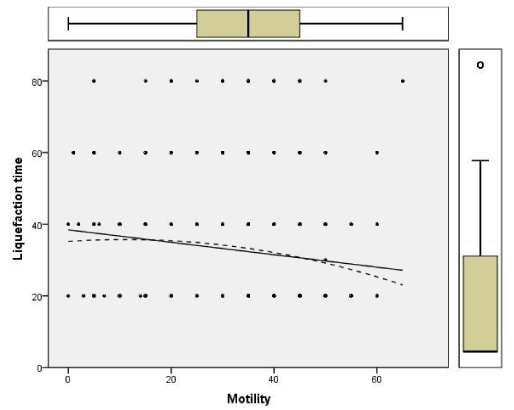
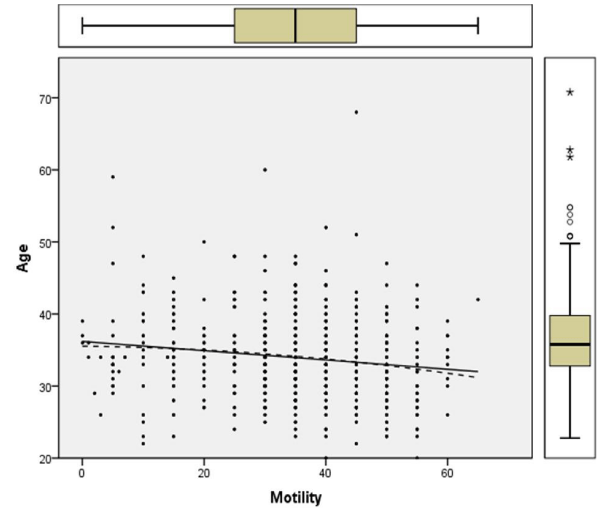
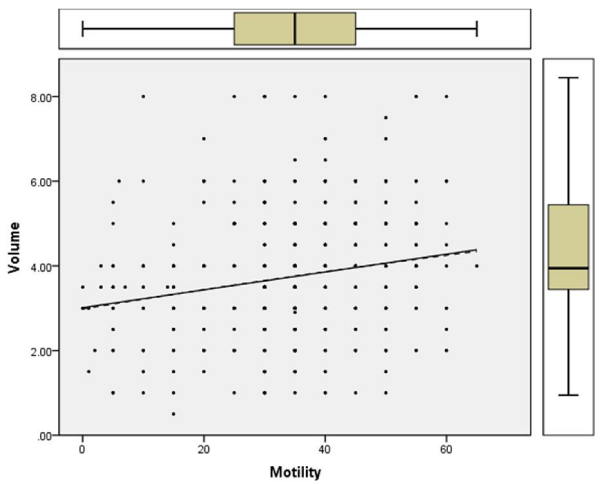
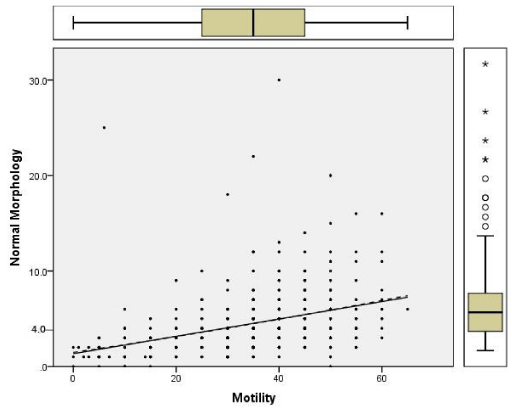
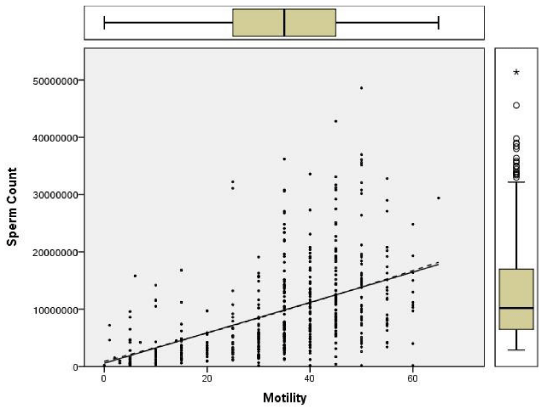
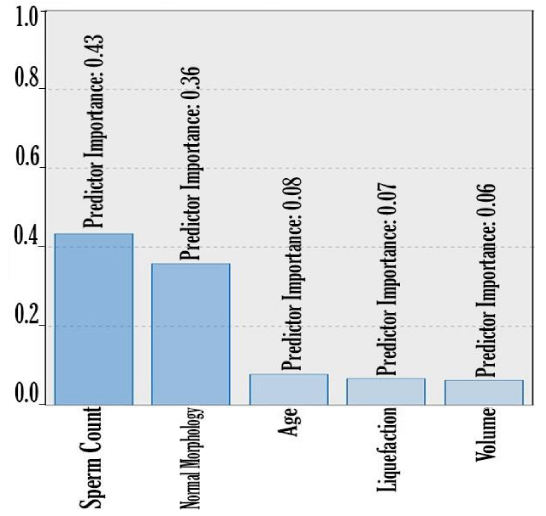
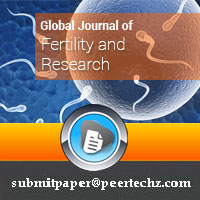
 Save to Mendeley
Save to Mendeley
